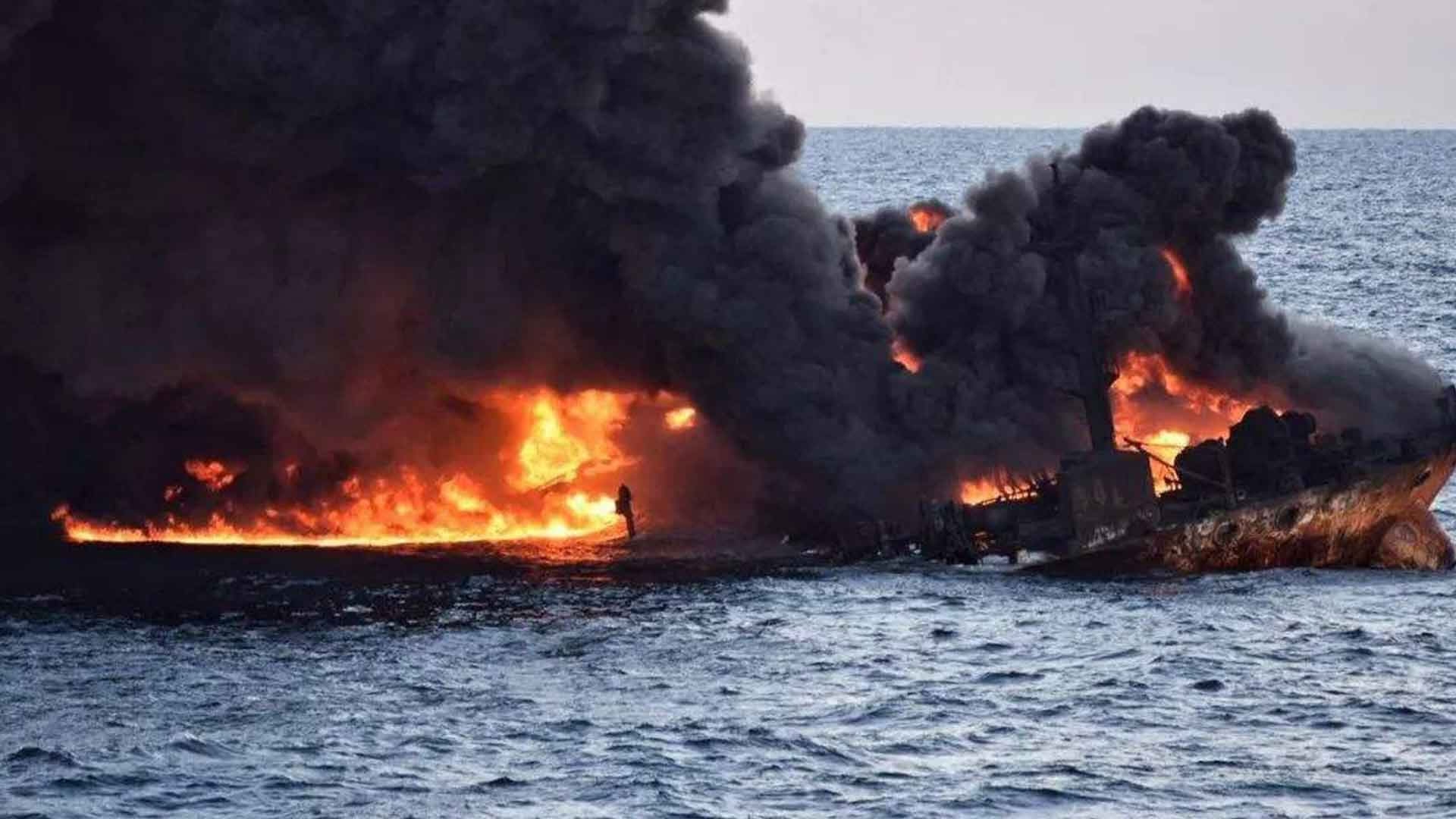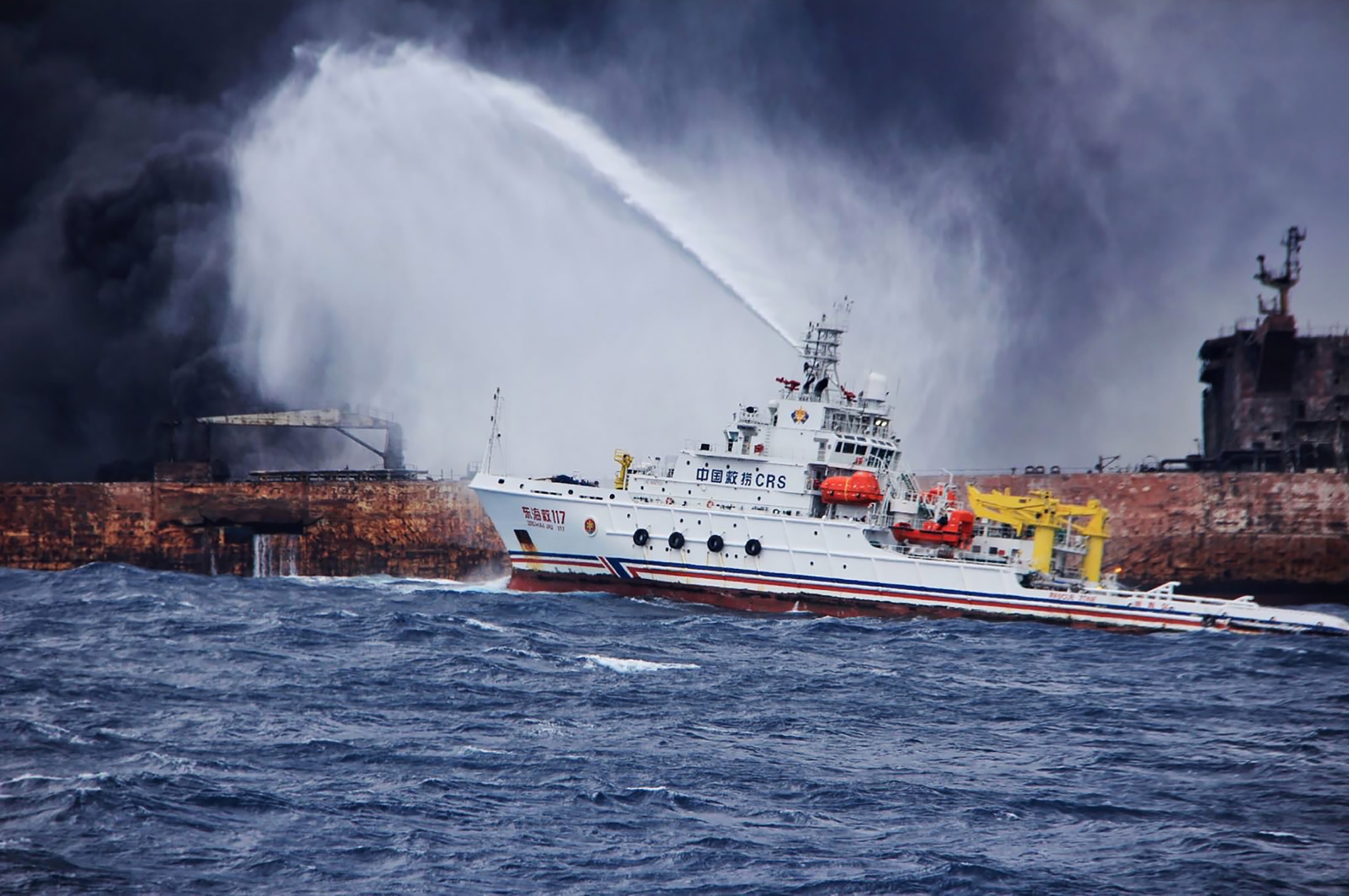
Politics
22:02, 15-Jan-2018
Eight days after collision, Iranian oil tanker sinks with no survivors
By CGTN's China 24

The Iranian oil tanker Sanchi has sunk off the coast of Shanghai after a powerful explosion, taking with it hopes for finding the 29 crew members still unaccounted for. Surveillance footage from Sunday noon shows the blast was followed by flames reaching over 800 meters high. The body of the ship was later confirmed sunk, with over 100,000 tons of light crude oil condensate.
Condensate is an extremely light form of oil which mostly occurs as a by-product of natural gas production. It is sometimes called "white oil" and is mostly used to make vehicle fuel, such as gasoline.

The Chinese firefighting vessel Donghaijiu 117 spraying foam on the burning oil tanker Shanchi at sea off the coast of eastern China on January 11, 2018. /VCG Photo
The Chinese firefighting vessel Donghaijiu 117 spraying foam on the burning oil tanker Shanchi at sea off the coast of eastern China on January 11, 2018. /VCG Photo
Operating in areas where condensate has escaped is dangerous for people due to the danger of explosions, oxygen displacement and the threat of asphyxiating and anaesthetizing. When forming a spill, it is considered to be dangerous due to its toxicity and because it is difficult to contain and manage. However, it dissipates and breaks down more easily than heavier oils.
Wu Changhua, chairperson of the China Redesign Hub, a startup to advance sustainable development said that the two major problems of the explosion are air pollution and ocean environment damage.
The explosion has already caused air pollution and the oil may kill marine life, she warned.
She added that immediate action to solve the influences is impossible. In this case, the cooperation between China and international society is necessary.

SITEMAP
Copyright © 2018 CGTN. Beijing ICP prepared NO.16065310-3
Copyright © 2018 CGTN. Beijing ICP prepared NO.16065310-3